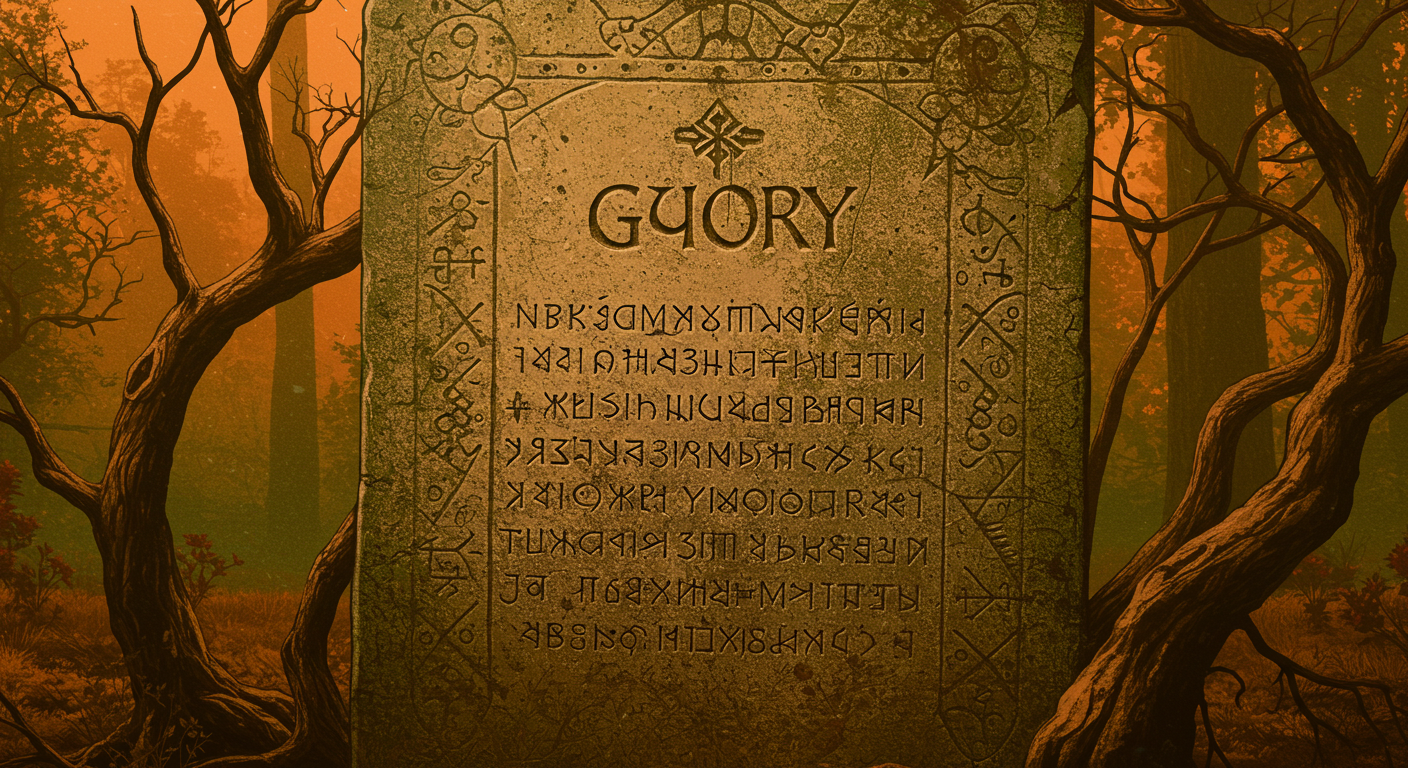In a digital world filled with new slang, emerging terminology, and cross-cultural expressions, one word that has sparked curiosity across platforms is gñory. With its unique spelling and mysterious tone, many people are asking—what does gñory actually mean?
Whether you’re hearing this word in social media circles, online games, or modern art spaces, the use of gñory is growing. In this detailed guide, we’ll uncover the roots, interpretations, and various uses of the term, giving you a complete understanding of its place in today’s language.
Understanding the Origins of Gñory
Where Did Gñory Come From?
The word gñory isn’t found in traditional English dictionaries, and its origin is still debated. Some believe it stems from a fusion of phonetic sounds in indigenous or fictional languages, while others argue that it’s a neologism created for internet culture.
Though its exact birth is unclear, one thing is certain: gñory has captured attention because of its distinctive look and abstract vibe. The unusual “ñ” adds linguistic flavor that’s often associated with Spanish, Basque, or Filipino scripts—yet the word itself doesn’t belong to any specific language with certainty.
How Is Gñory Used in Modern Context?
From Memes to Movement
In 2025, words like gñory are more than just letters. They carry emotion, culture, or satire. It has become a term used playfully online, sometimes to represent:
-
A fictional creature or concept
-
A sarcastic reaction (e.g., “That’s so gñory of you!”)
-
An aesthetic style (dark, surreal, abstract)
-
A secret code among online communities
People use gñory the way others might use made-up words like “blorb” or “yeet”—it sounds cool, mysterious, and gives a certain edge to whatever it’s describing.
Gñory as a Brand and Identity
Digital Identity in the Age of Abstraction
As online platforms continue to shape modern identities, terms like gñory have become part of usernames, project titles, and even brand names. Artists and digital creators are particularly drawn to its unique typography and sound.
The name gñory feels futuristic yet ambiguous—perfect for someone building a brand that doesn’t want to be boxed into one idea. It might be a podcast, NFT collection, or visual art project. The brand appeal of the term is undeniable in niche internet spaces.
Why Are People Fascinated by Gñory?
The Power of a Made-Up Word
Made-up words like gñory are fascinating because they allow people to assign their own meanings. There’s no strict definition, and that freedom becomes a canvas for creativity. You might hear someone say:
-
“That painting gives off major gñory vibes.”
-
“My playlist is pure gñory energy.”
-
“Let’s gñory it up tonight!”
In each sentence, the word takes on a different meaning, and yet, it still feels like it fits. That’s the beauty of abstract terminology in digital culture.
Gñory in Pop Culture and Online Trends
A Word Born from the Internet
The internet is known for birthing strange but catchy words, and is no exception. It has appeared in Twitter threads, Tumblr memes, Discord chats, and Reddit discussions.
Much like terms such as “rizz,” “vibe,” or “sus,” the rise of proves how digital communities can invent and popularize new vocabulary overnight. Even without dictionary validation, these terms shape the way we speak and connect.
Trending on TikTok
TikTok creators have started using as a theme. Some use it to label a particular filter style—think glitchy, surreal, or hyper-saturated. Others build skits around the concept of as an alien culture or alternate reality.
Whether it’s visual art, music, or even storytelling, has emerged as a symbol of creative ambiguity.
The Linguistic Perspective on Gñory
Is It a Word or Just a Sound?
Linguists might describe as a “nonce word”—a term invented for one-time use or for specific effect. It’s similar to how Lewis Carroll created words like “slithy” and “mimsy” in Jabberwocky.
The use of the “ñ” makes the term more dynamic, blending sounds not common in English. Phonetically, gñory can be pronounced as:
-
“NYO-ree”
-
“Guh-nyor-ee”
-
Or even “Jñor-ee,” depending on the user
This flexibility in pronunciation and meaning makes the word flexible and universally adaptable—one reason it’s becoming increasingly popular in creative communities.
Could Gñory Become Mainstream?
From Internet Slang to Dictionary Status?
While it may seem unlikely, words like “selfie” and “google” were once considered slang before they were adopted into the dictionary. If continues to gain usage and public recognition, it could very well find its way into formal lexicons.
Brands, musicians, artists, and even content creators are already using to label their work. If that trend continues, it may cement itself as a part of modern language—informal, yes, but influential.
How to Use Gñory in Everyday Language
Want to join the trend? Here are a few ways to naturally incorporate into your conversations:
-
“That movie was pure energy.”
-
“I’m in a mood—let’s paint something weird.”
-
“Their fashion sense is totally
-
“Just finished a track called ‘Dreams.’”
You don’t need to define it clearly—just use it to express something aesthetic, surreal, mysterious, or abstract.
Final Thoughts: The Evolving Identity of Gñory
The word is more than a passing internet trend—it’s a symbol of modern creative language. Its undefined nature makes it exciting, playful, and full of potential. Whether you’re using it to brand your next art project, describe a feeling, or simply join in on a meme, gives you the freedom to express the inexpressible.
In a world where language is evolving faster than ever before, embracing words like keeps communication fun, imaginative, and alive.
